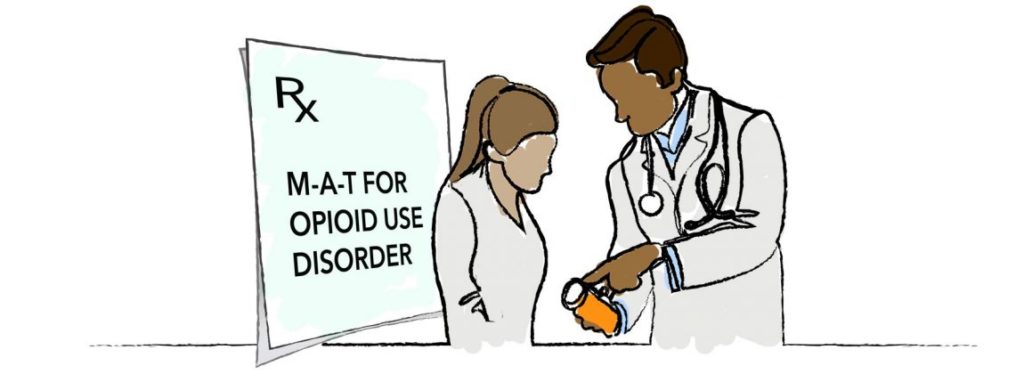Since the opioid epidemic was first declared as a public health emergency by the U.S. Department of Health and Human Services in October 2017, PAEA has implemented three significant federally funded initiatives intended to bolster PA education’s response to the crisis:
- The Medication-Assisted Treatment (MAT) Waiver Training Initiative
- Providers Clinical Support System Trainings (PCSS-MAT)
- The Expansion of Practitioner Education (PRAC-ED-PA) Project
Federal investments in these initiatives, totaling nearly $1 million, represent the commitment of PAEA and PA programs to ensuring that graduates are fully prepared to provide high-quality care for those suffering from substance use disorders.
MAT Waiver Training Initiative

Medication-assisted treatment (MAT) — the use of medications and behavioral interventions to treat patients suffering from substance use disorder — is widely regarded as the gold standard for the treatment of opioid dependence among experts in addiction medicine. Despite its demonstrated effectiveness, the demand for MAT outpaces the supply of MAT providers in almost all states. To address national MAT provider shortages in pursuit of the Association’s vision of Health for All, PAEA partnered with the American Academy of Addiction Psychiatry on a grant funded by the Substance Abuse and Mental Health Services Administration (SAMHSA) known as the State Targeted Response Technical Assistance Consortium (STR-TA). The grant, dedicated to building an Opioid Response Network with professional organizations from around the country, allowed PAEA to launch the MAT Waiver Training Initiative in 2018.
From 2018–2020, PAEA’s MAT Waiver Training Initiative staff worked to achieve the goal of all PA programs adopting a requirement that students complete X-waiver training prior to graduation. By completing 24 hours of training, PA graduates were able to apply for the X-waiver to prescribe buprenorphine for the treatment of opioid use disorder in office-based settings as soon as they enter practice. With this expertise and capacity, PAs could play a more vital role in increasing access to this life-saving treatment in their communities.
At the start of the initiative in 2018, only 3 percent of all PA programs required student MAT training. By the end of the MAT project, more than 60 percent of all PA programs planned to offer or required student MAT training. As of December 2022, the waiver as well as the 24-hour training is no longer required through the enactment of the Mainstreaming Addiction Treatment Act and Medication Access and Training Expansion Act. Instead, all practicing clinicians are now required to register with the Drug Enforcement Administration (DEA) to certify their completion of 8 hours of substance use disorder training through an external organization or via the curriculum provided by the educational program from which they graduated.
PCSS-MAT
Building on the success of the MAT Waiver Training Initiative, PAEA received a three-year sub-award through the Providers Clinical Support System (PCSS) to conduct MAT waiver training sessions targeted to faculty, preceptors, and other stakeholders. This project concluded in July 2022 and resulted in the successful facilitation of 8 trainings for a total of 273 participants.
PRAC-ED-PA
While expanding the number of MAT providers is a critical component of the larger strategy to combat the opioid epidemic, PAEA also recognizes the importance of expanded high-quality substance use disorder education for PA students. To help meet this aim, PAEA was awarded $476,000 over two years by SAMHSA in 2019 through the agency’s Expansion of Practitioner Education (PRAC-ED) grant to administer the PRAC-ED-PA project.
From 2019–2021, PAEA collaborated with the faculty of 10 pilot PA programs on the PRAC-ED-PA project to develop a standardized substance use disorder curriculum, which was administered and evaluated prior to its expansion to an additional 10 programs in the second year of the project.
By enhancing and improving existing substance use disorder curriculum for PA students through PRAC-ED-PA, PA students were better prepared to prevent, identify, and treat highly prevalent substance use disorders upon entering practice. This is yet another example of PA education’s vital role in preparing a PA workforce that is well-equipped to meet the current and growing needs of patients nationwide.